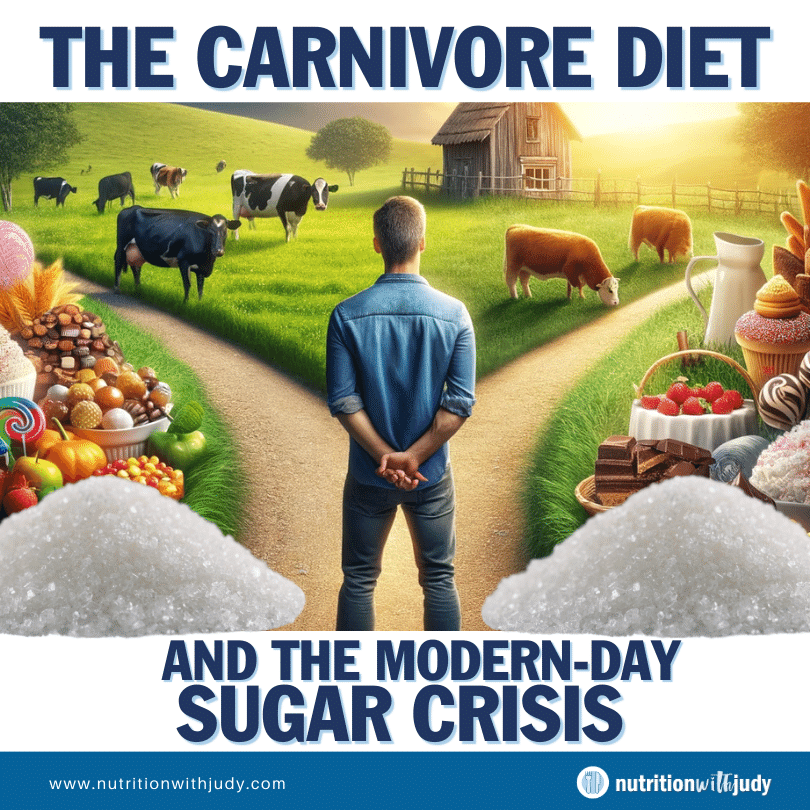

The Carnivore Diet and Modern-Day Sugar Crisis


We’ve been sold the idea that everything in moderation with diet is ideal for optimal wellness. That moderation is the key to having balance within your life, allowing you to enjoy guilt-free options as long you don’t “overdo it.”
While the dose can make the poison for certain things, the reality is that when it comes to sugar, there are so many different modern-day factors at play that “moderation” becomes a very relative term. And while not everyone will need to completely cut out sugar to thrive, we’re living in a society where excess sugar consumption has become the norm.
With obesity and chronic disease on the rise, it’s important to have an honest conversation about the modern-day sugar crisis. One of the most powerful ways people are reclaiming their health from the consequences of overconsuming sugar is the carnivore diet. The carnivore diet offers a compelling dietary tool for addressing the various downstream effects of excess sugar.
Let’s take a closer look at the different factors impacting sugar consumption and how the carnivore diet can help.
The Background On Sugar
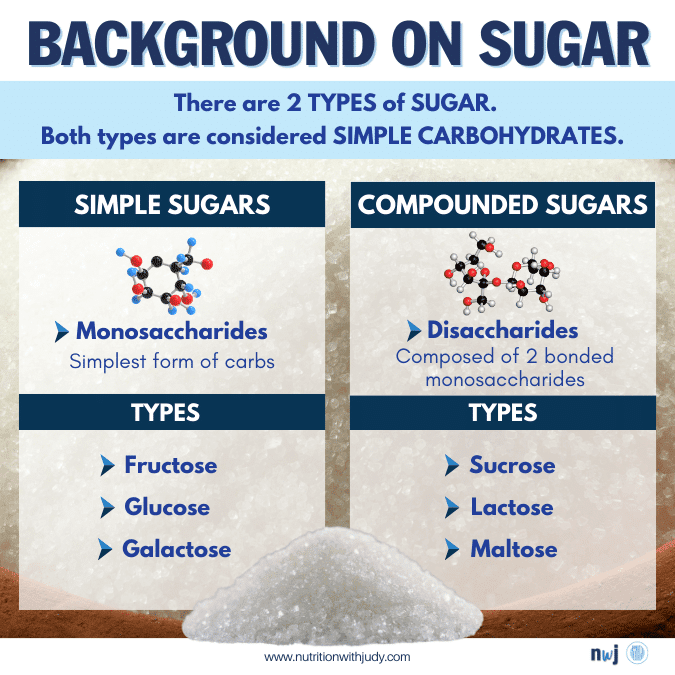

Sugar is a form of soluble carbohydrates. Carbs are one of three macronutrients, along with protein and fat. Carbs are also made of smaller building blocks referred to as saccharides. There are a vast number of combinations of various saccharides that differentiate between each form of carbohydrate.
There are technically two types of sugars— simple sugars and compounded sugars. Both simple and compounded sugars are considered simple carbs.
Monosaccharides
Simple sugars, or monosaccharides, are the simplest form of carbs, meaning the body can’t break them down any further. All simple sugars, except for fructose, can be quickly and easily absorbed. Fructose is processed by the liver, which is why excess fructose runs the risk of non-alcoholic fatty liver disease (NAFLD).
- Fructose: The main dietary source of fructose is fruit. Fructose is also commonly referred to as fruit sugar.
- Glucose: Both vegetables and fruits are natural sources of glucose. It’s also naturally occurring in honey and is a common additive to candy, syrups, sports drinks, and other processed foods.
- Galactose: The primary source of galactose is lactose, the sugar found in milk and other dairy products.
Honey and fruit are the most abundant natural sources of simple sugars.
Disaccharides
Compounded sugars, also known as disaccharides or double sugars, are molecules made of two bonded monosaccharides. The body must break the bonded sugar molecules apart before it can be absorbed.
- Sucrose: Sucrose is created by bonding glucose and fructose together. Most commonly referred to as table sugar, sucrose is a natural sweetener that is often manufactured from sugarcane or sugarbeet. It naturally occurs in fruits and vegetables and is often added to processed foods.
- Lactose: Lactose is glucose and galactose bonded together. Lactose, also known as milk sugar, is found in milk and dairy products.
- Maltose: Two glucose molecules bonded together create maltose. Maltose is found in malt beverages such as beer and malt liquors.
Chemical structures with three or more sugars are not considered as sugar but rather complex carbs. When three or more sugar molecules are bonded together, this creates oligosaccharides or polysaccharides, which are more complex, take longer to digest, and have a more gradual impact on blood sugar.
The body breaks down complex carbs into glucose in order to utilize it.
The Role of Sugar In the Body
The body relies on small amounts of sugar, specifically glucose, in order to function properly. For those eating a Standard American Diet (SAD) or any diet that isn’t low to zero-carb, glucose acts as the main energy source for the body.
For individuals consuming carbs or other forms of simple sugar, the body utilizes enzymes to break them down as well as help from the pancreas. The pancreas produces hormones such as insulin, which is essential for glucose processing. As you eat, your body tells the pancreas to release insulin in order to manage rising blood sugar levels.
The processed glucose is then used for energy by muscles, fat, and other cells or stored as fat for later use.
What About Ketogenic and Carnivore Diets
While we do need glucose for proper bodily function, we actually don’t need glucose from our food. Standard care and mainstream nutrition may argue that a balanced diet with the inclusion of carbs is essential for optimal wellness, but here’s why we disagree.
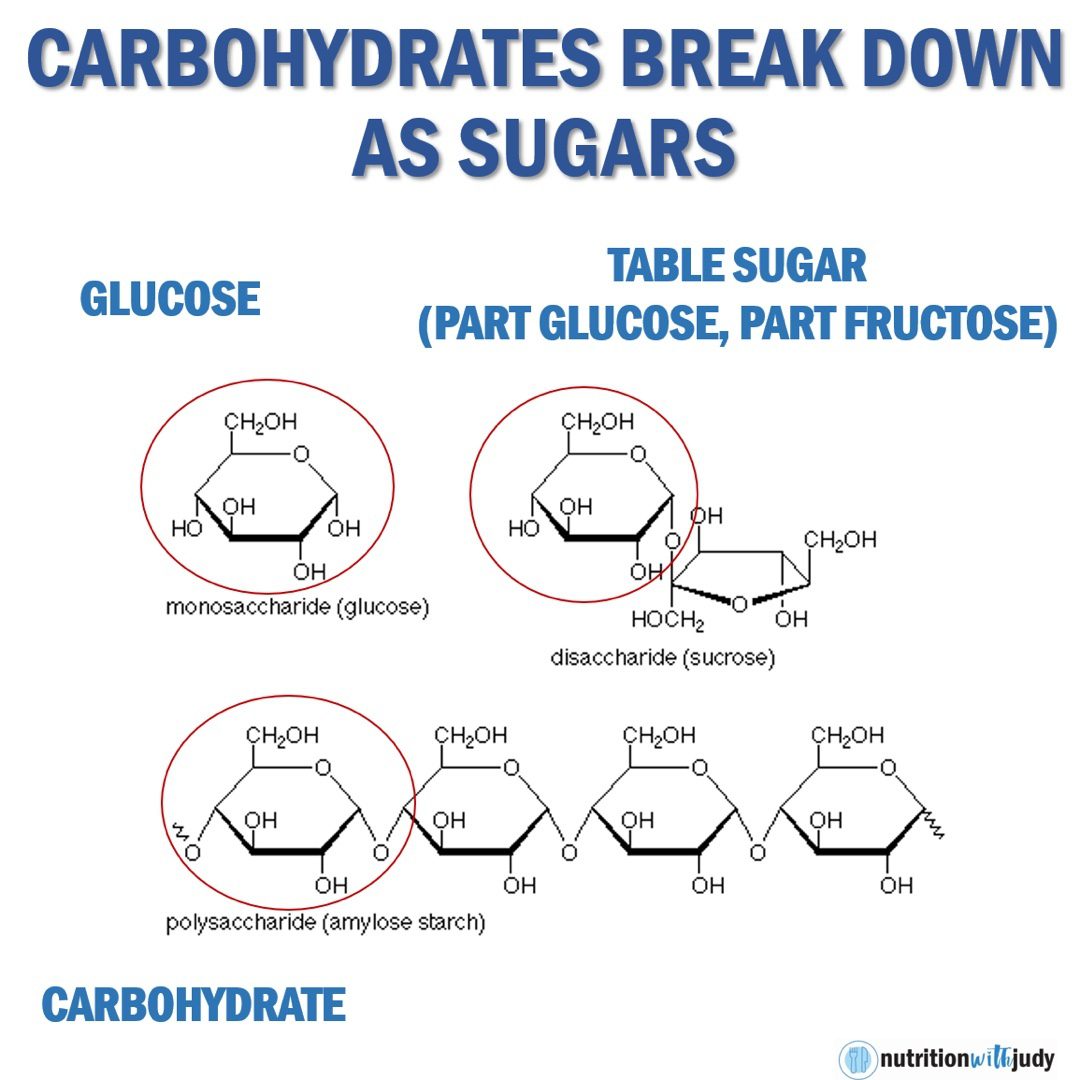

Carbs (sugar is a form of carbs) are the only macronutrient that isn’t essential for humans and has no established minimum requirement. As mentioned above, all carbs (except for fiber, which can’t be digested) are broken down into glucose in the body.
For those on ketogenic or carnivore diets with limited to no dietary glucose intake, that’s where gluconeogenesis comes into play.
Understanding Gluconeogenesis


Gluconeogenesis is the metabolic pathway by which glucose is formed from protein. The formation of new glucose molecules is created by the liver, which converts glucose to glycogen and stores it for future use. This is the most prevalent process people think of when discussing energy sources and the potential for eating too much protein.
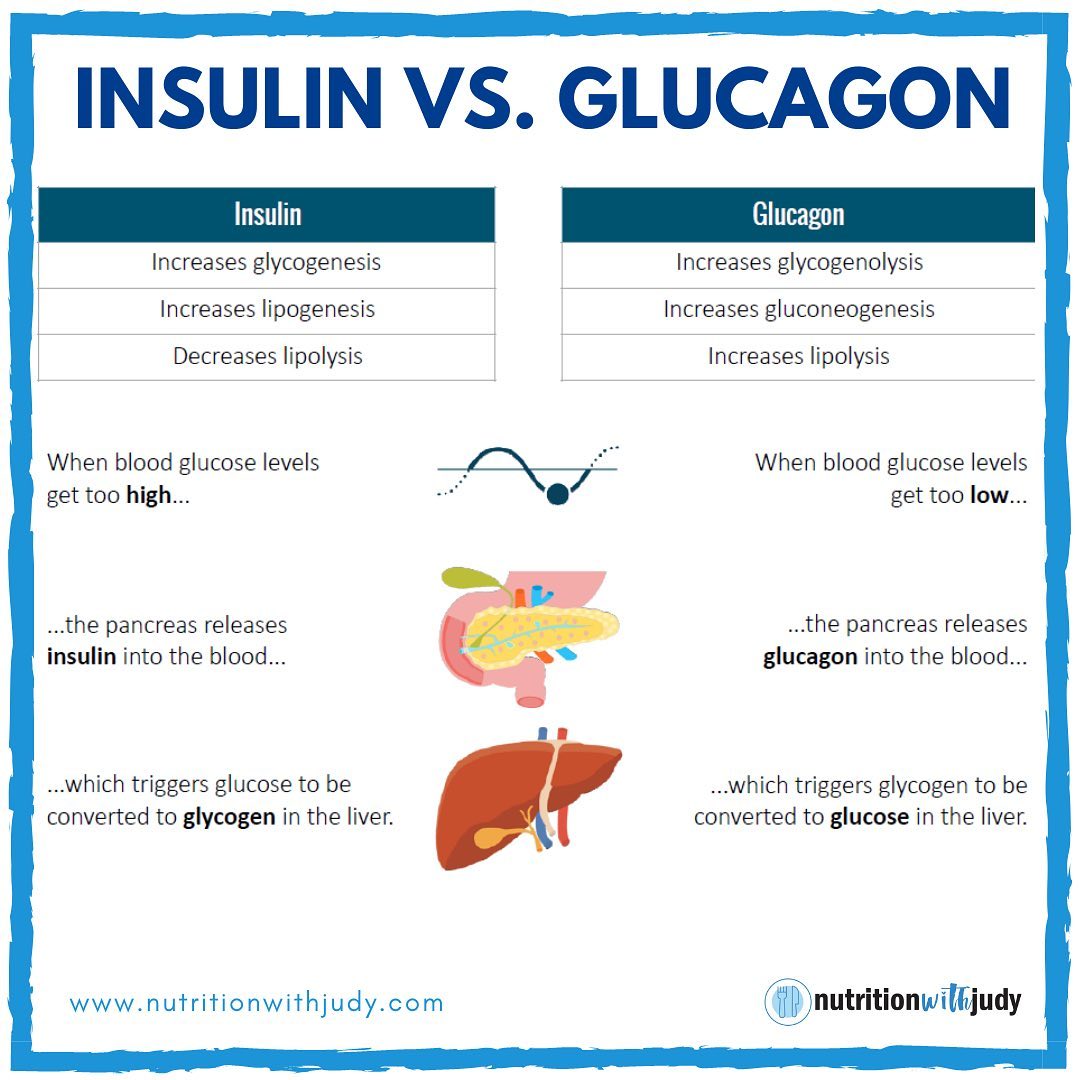

But, why do we only talk about gluconeogenesis? The body has many ways of storing and breaking down energy, which is stored and subsequently broken down to fuel the body’s functions. For example, even if we are sugar burners, the brain still uses fatty acids even if we don’t produce a lot of ketones. Yes, there are other fatty acids other than ketones.
Do we need glucose in the body? Yes. Does it need to come from food? No.
Here are some ways our body mechanistically uses, stores, and breaks down energy in the body to create glucose:
- Gluconeogenesis: Through gluconeogenesis, the average adult can store about 100 grams of glycogen in the liver, which is about 10% of the organ’s weight. Skeletal muscle cells also convert blood glucose to glycogen and store it locally through this process. The average adult can also store about 400 grams of glycogen in the muscles, accounting for 1% to 2% of muscle mass. Glycogen stored in the muscles can only be used locally, while liver glycogen can be used anywhere.
- Lipogenesis: When the liver and muscle glycogen stores are full, the liver then converts any remaining glucose into triglycerides. Triglycerides are then stored in fat cells. This is why triglycerides are low on a keto diet.
- Lipolysis: The process in which triglycerides that are stored in body fat are broken down into glycerol and free fatty acids. Fat cells release free fatty acids into the blood when blood sugar is low.
- Glycogenolysis: Converts glycogen back to glucose for energy.
- Glycolysis: The metabolic pathway that converts glucose into pyruvate, which can then enter the citric acid cycle, also known as the Krebs cycle.
- Ketogenesis: Converts fatty acids into ketones in the liver.
The body leverages insulin and glucagon hormones to pull all these energy levers. Do you see how fat via the lipolysis process, can be broken down into glycerol and converted to glucose for energy?
Our body does not require an external glucose source for glucose.
Excess Sugar In the Body
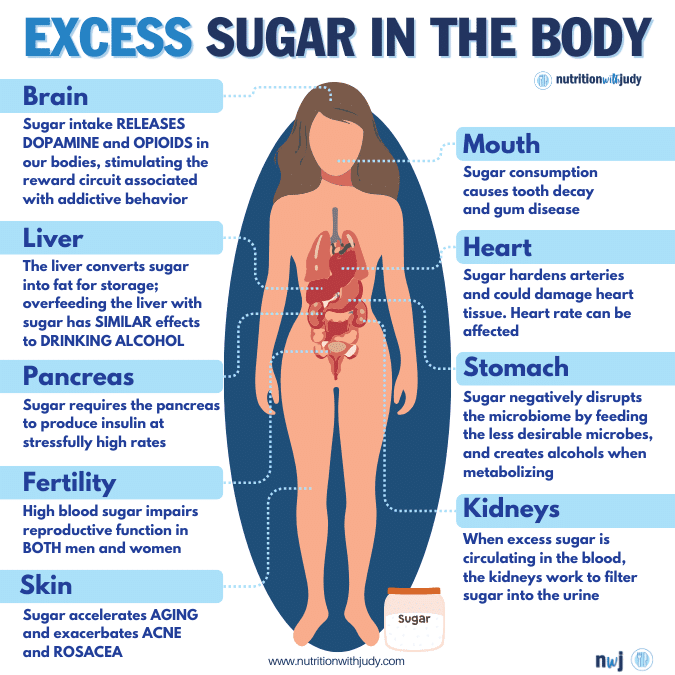

Excess sugar in the body leads to a cascade of issues across various systems. Here’s a quick overview:
Oral Health: The moment sugar touches your tongue, it triggers a full-body reaction. When your taste buds detect sweetness, they send reward signals to the brain and body. Sugar consumption also impacts oral health by feeding the bad bacteria in your mouth. Oral bacteria eat sugar and produce acid, deteriorating tooth enamel over time.
Skin: Sugar consumption causes insulin levels to spike, leading to inflammation. Inflammation produces enzymes that break down collagen and elastin due to a process called glycation. Glycation is responsible for exacerbating the effects of aging as well as other skin conditions.
The Gut: Overconsuming sugar has a direct negative impact on gut health. It can increase the bad bacteria in our microbiomes and is a risk factor for gut infections such as small intestinal bacterial overgrowth (SIBO). Poor gut health impacts holistic wellness, including emotional well-being.
Pancreas: When you consume sugar, it’s broken down in your digestive system into glucose and fructose, which are the basic forms of energy utilized by your body. These substances then enter your bloodstream, prompting the pancreas to release insulin. Insulin is a crucial hormone that helps manage blood sugar levels by encouraging cells to absorb sugar from the blood.
Persistent high levels of insulin can lead to conditions such as prediabetes and, eventually, type 2 diabetes. Before these conditions are diagnosed, the pancreas may already be experiencing strain and damage. Additionally, the body may start to develop insulin resistance, leading to several issues, including weight gain, an increase in appetite, and a decrease in energy levels.
Consuming an unhealthy diet over time can further exacerbate these issues, potentially leading to the destruction of the pancreatic beta cells responsible for insulin production.
Liver: The liver has multiple functions, one of which is transforming excess sugar into fat for storage, allowing it to be used as energy at a later time.
However, when the body takes in too much sugar, particularly fructose, the liver is forced to work harder than normal. Research has shown that consuming excessive amounts of sugar can harm the liver, similar to the effects of heavy alcohol consumption. This excessive sugar intake can eventually contribute to significant health issues, including the development of non-alcoholic fatty liver disease (NAFLD).
Kidneys: Excessive sugar intake can result in hyperglycemia and diabetes, the primary contributors to kidney failure in the United States. High blood sugar levels force the kidneys to excrete sugar through the urine, a process that can cause ongoing kidney harm.
Heart: Historically, diets high in fat were thought to be the leading cause of heart disease, yet recent research suggests that excessive sugar intake is actually more harmful. The sugar industry paid scientists in the 1960s to downplay the link between sugar and heart disease and blame saturated fats instead. The wrongful demonization of saturated fats and misrepresentation of sugar health implications still biases standard care today.
Research demonstrates that elevated blood sugar levels play a significant role in the development of atherosclerosis (the hardening of the arteries) and can directly damage heart tissue.
Fertility Health: Excessive intake of sugar adversely affects the reproductive health of both men and women. Consuming high levels of fructose and glucose can inhibit the gene responsible for controlling the amounts of active testosterone and estrogen in the body.
For men, elevated blood sugar levels can disrupt sperm production. For women, it may hinder ovulation and raise the risk of conditions such as polycystic ovary syndrome (PCOS) and endometriosis.
Real Talk On Sugar
Let’s put “eating sugar in moderation” into context. In the 1800s, the average American consumed 22 lbs of sugar annually and that doesn’t count for carbs. In 2009, the average person consumed 176 lbs of sugar annually. Let’s break this statistic down to make it more simple.
If the average American ate 176 lbs of sugar in 2009, that equals 79,832 grams of sugar in total. This equates to consuming 219 grams of sugar daily. That’s about eight medium bananas. The average sugar consumption is still growing year after year.
Excessive sugar consumption is known to cause various chronic illnesses. A large review of 73 meta-analyses that included 8,601 studies reported that the high consumption of added sugar was associated with significantly higher risks of 45 negative health outcomes. These outcomes included obesity, diabetes, gout, high blood pressure, heart disease, cancer, asthma, depression, tooth decay, and early death.
Even if you’re eating significantly less sugar than the average American, let’s take a closer look at modern-day produce and some of the consequences of eating sugar in “moderate amounts.”
The Reality of Modern-Day Fruit and Vegetables
Another common argument for sugar is that as long as we eat naturally occurring sugar from produce such as fruit, it’s healthy and part of a balanced diet. They say fruit is nature’s candy, but we’d argue that modern-day fruit is closer to just candy.
Many of us agree that we should eat like our ancestors. Our definition of ancestors may be different than some. Still, we can all agree that eating similar to the way we did before the invention of modern agriculture is probably ideal.
Boxed, processed, sugary foods and inflammatory vegetable and seed oils are less than ideal. Chronic exposure to these foods is toxic to our bodies, leading to leaky gut and all sorts of various diseases. But what about fruit?
While the pros and cons of consuming fruit are highly dependent on the individual, let’s not pretend that eating modern-day fruit is consistent with ancestral eating. Our ancestors who picked berries weren’t successful in finding berries daily or even monthly. Some berries are in season during the spring but most berries are only naturally available during the summer. That’s three months out of twelve months, which is about 25% of the year.
So maybe we should only be eating fruit during the hot summer months when some of us find fatty meats not as appetizing (it’s always appetizing for us but this is a common argument we hear).
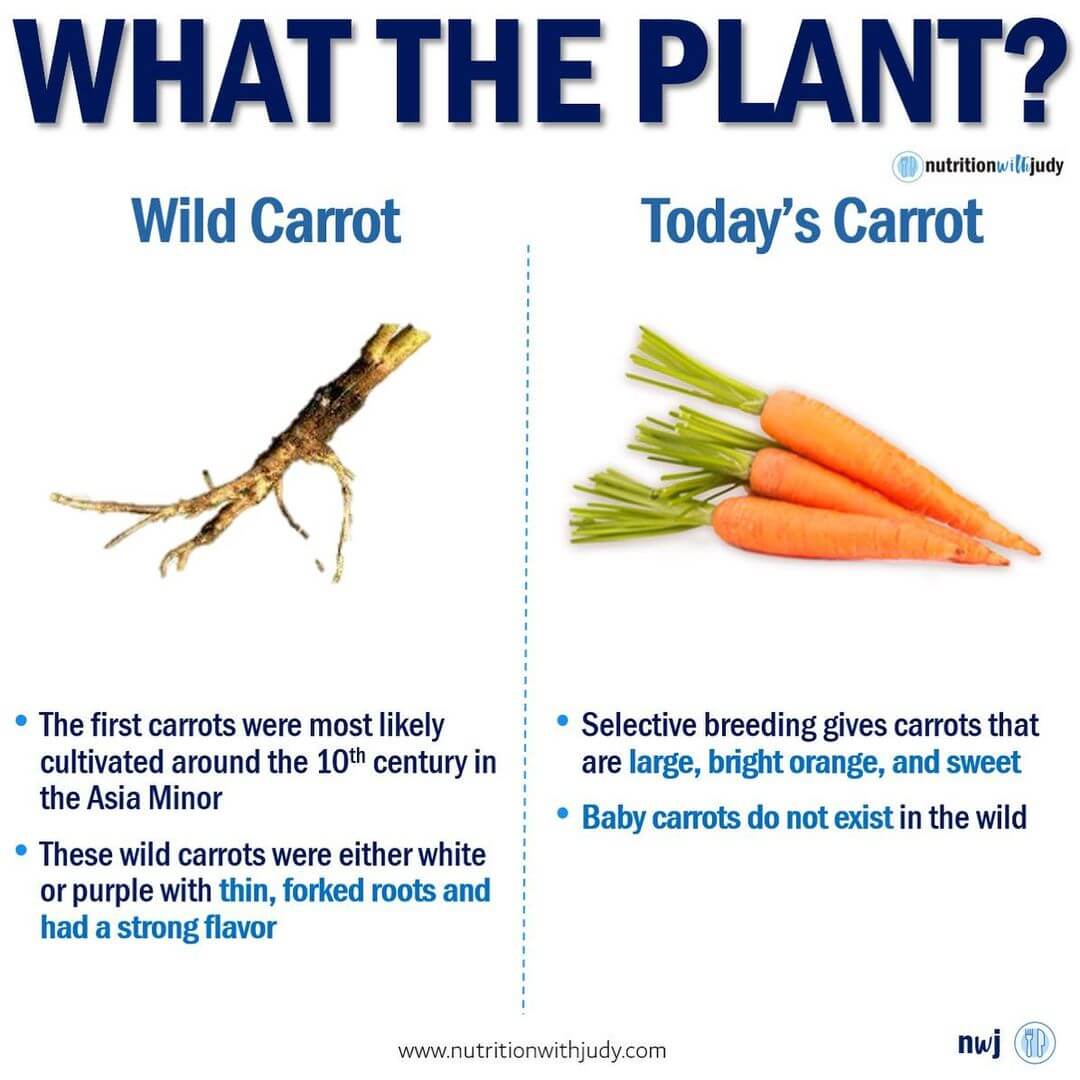

The reality is that all of our vegetables and fruits, even organic ones, aren’t the same as the wild ones from hundreds of years ago. And when we say eating the rainbow is the best way to stay healthy, it’s quite misleading— we never had the rainbow of produce that we have now.
We understand that modern technology has given us genetically modified foods and the capability to breed favorable plants leading to modern-day inventions such as plumots and cotton candy grapes. This is also how we’ve created seedless watermelons and tangerines. This technology has also enabled us to create super sweet fruits that never existed in nature before.
Sugar and the Immune System
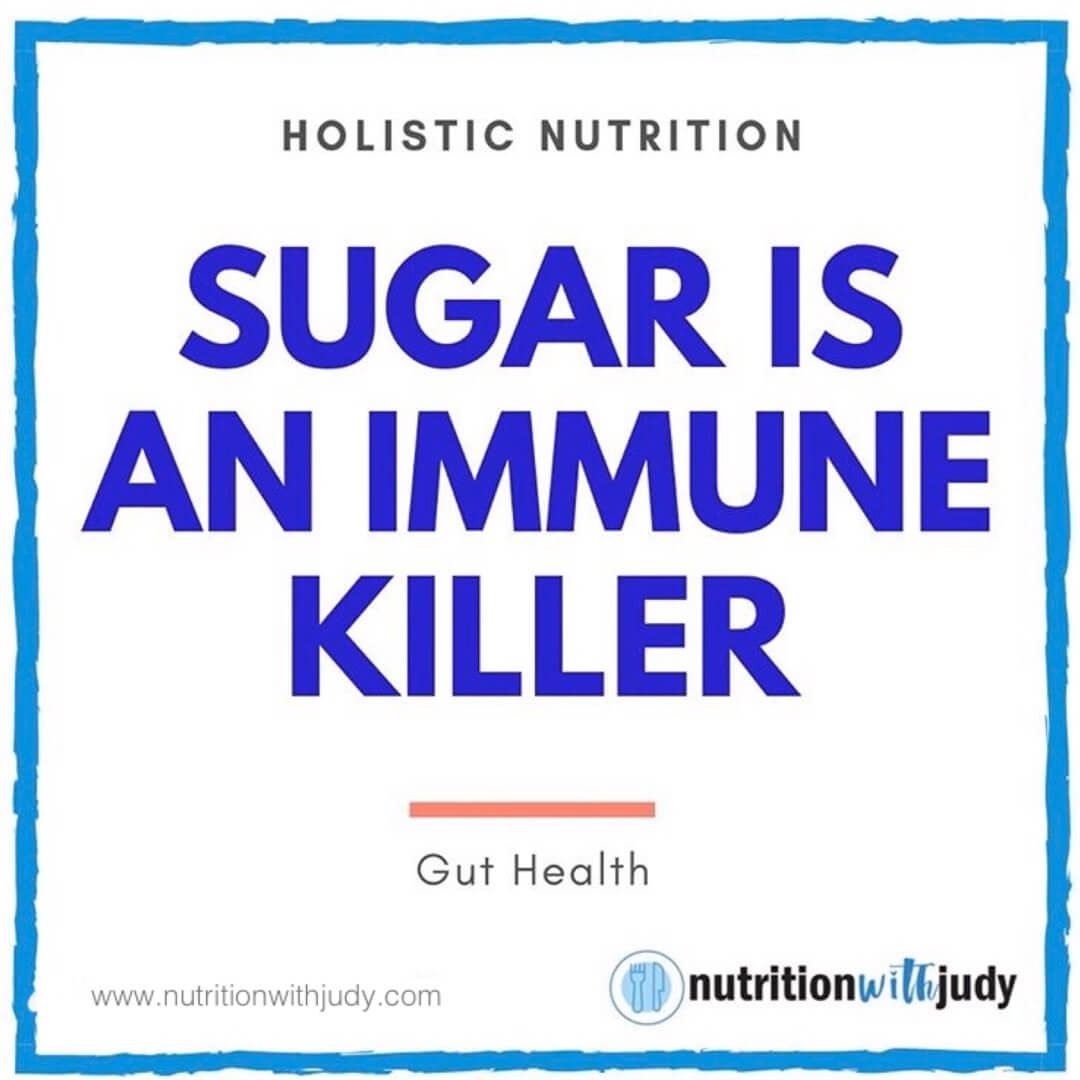

As soon as you eat refined sugar, it reduces how white blood cells perform. White blood cells are an essential part of the body’s immune system, with 70%-80% of the immune system housed within the gut.
You can think of the immune system as several lines of defense. Our first line of defense is innate immunity. They protect us from invading pathogens. Studies show that a high-sugar diet abnormally impacts the innate immune system, causing increased inflammation.
There’s a direct connection between type 2 diabetes and the innate immune response not functioning properly. Too much sugar suppresses your immune system.
That’s why it’s important to try avoiding sugar when you’re sick or have a fever. You want your immune system to fight the good fight inside of you, as the fever is a sign of the immune system at work. If you start eating any sugar, you’re basically handicapping your immune system, which is ironic as most fever medications contain added sugars.
So, what does this mean if you’re ingesting sugar when you’re sick? Your adrenals produce hormones that help regulate your immune system, metabolism, and stress response. Your adrenals produce cortisol, a steroid hormone. Cortisol is released during stress but also to manage blood sugar levels.
But this comes at a cost.
Cortisol requires a lot of resources to make. Remember, our bodies prioritize survival over everything, and when our blood sugar levels are high, cortisol production steals the necessary nutrients required for other processes.
Cortisol is made with cholesterol and uses up a lot of the B vitamins. If you don’t have enough B vitamins, the other bodily functions suffer. B vitamins are a group of eight essential nutrients that are responsible for a variety of things, including mental health and cellular function. Guess what else suffers? B vitamins are also responsible for helping prevent infections and support overall cell health.
Maybe that’s why studies show that vegans get sick more often, as most don’t get enough cholesterol or B vitamins.
Lower sugar intake means less cortisol is needed. The same goes for stress— if you’re stressed or consuming sugar, eat more foods rich in cholesterol and B vitamins. Your body will thank you for it.
And even if you are actively lowering your sugar intake, sugar addiction is something we all have to consider honestly.
Pro-Tip: Are you experiencing adrenal fatigue from stress and excess sugar consumption? Try ADB5-Plus for comprehensive adrenal support. This supplement offers both a glandular and an adaptogen for hypo- and hyper-dysfunction.
Sugar Addiction
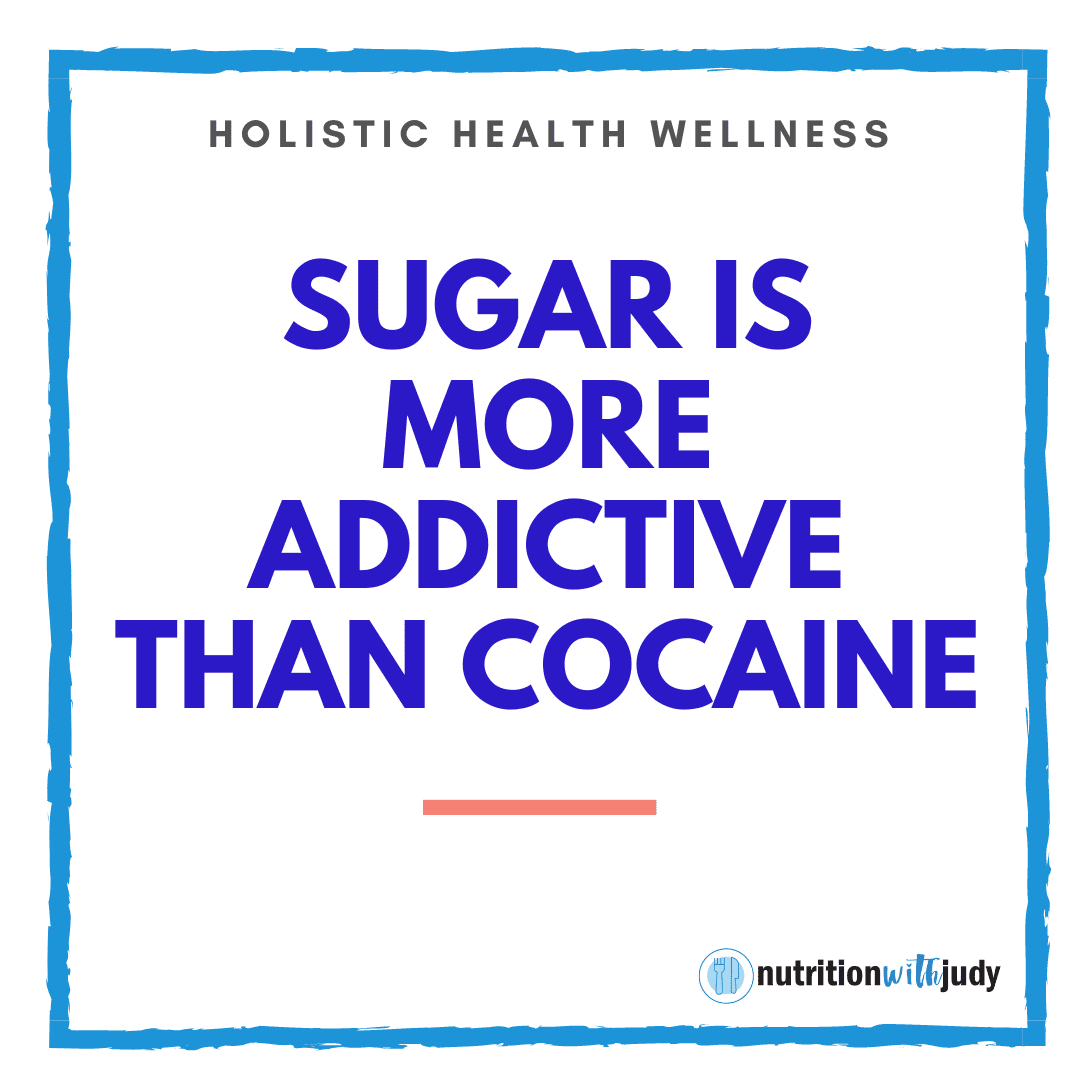

Sometimes, diets go beyond food. A lot of times, it’s our relationship with food that needs healing. Many of us have poor relationships with food, and much of it stems from sugar addiction.
Many studies have showcased just how addictive sugar can be, reporting that sugar and the sweet reward not only substitute addictive drugs such as cocaine but can even be more rewarding and attractive, making sugar more addictive than illicit drugs.
In this study, sweetened water was always preferred regardless of the situation. Even if the rats were completely addicted to cocaine and at extreme doses, they always preferred sugar.
So, what’s the one common solution for overcoming all addictions? Abstaining. You must abstain from drugs, alcohol, cigarettes, and other addictive substances.
But how can you abstain from food? You can’t— that’s why food addiction is arguably the most difficult addiction to overcome. Every single time you put food in your mouth, you’re tested by your addiction.
By completely abstaining from any and all sugars (including carbs), it provides the closest option to abstaining from sugar addiction and, in turn, healing our relationship with food.
Most of our clients who rationalize consuming sugar fall into a slippery slope. First, a piece of fruit, then some keto treats, and then full-on carbs. If we were all good at moderating, we would never have had to try a diet like the meat-only carnivore diet.
This reminds us of the slow sugar drip given to the rats in this study— no amount of sugar works for our bodies until we have healed our relationship with food.
What Is the Carnivore Diet?
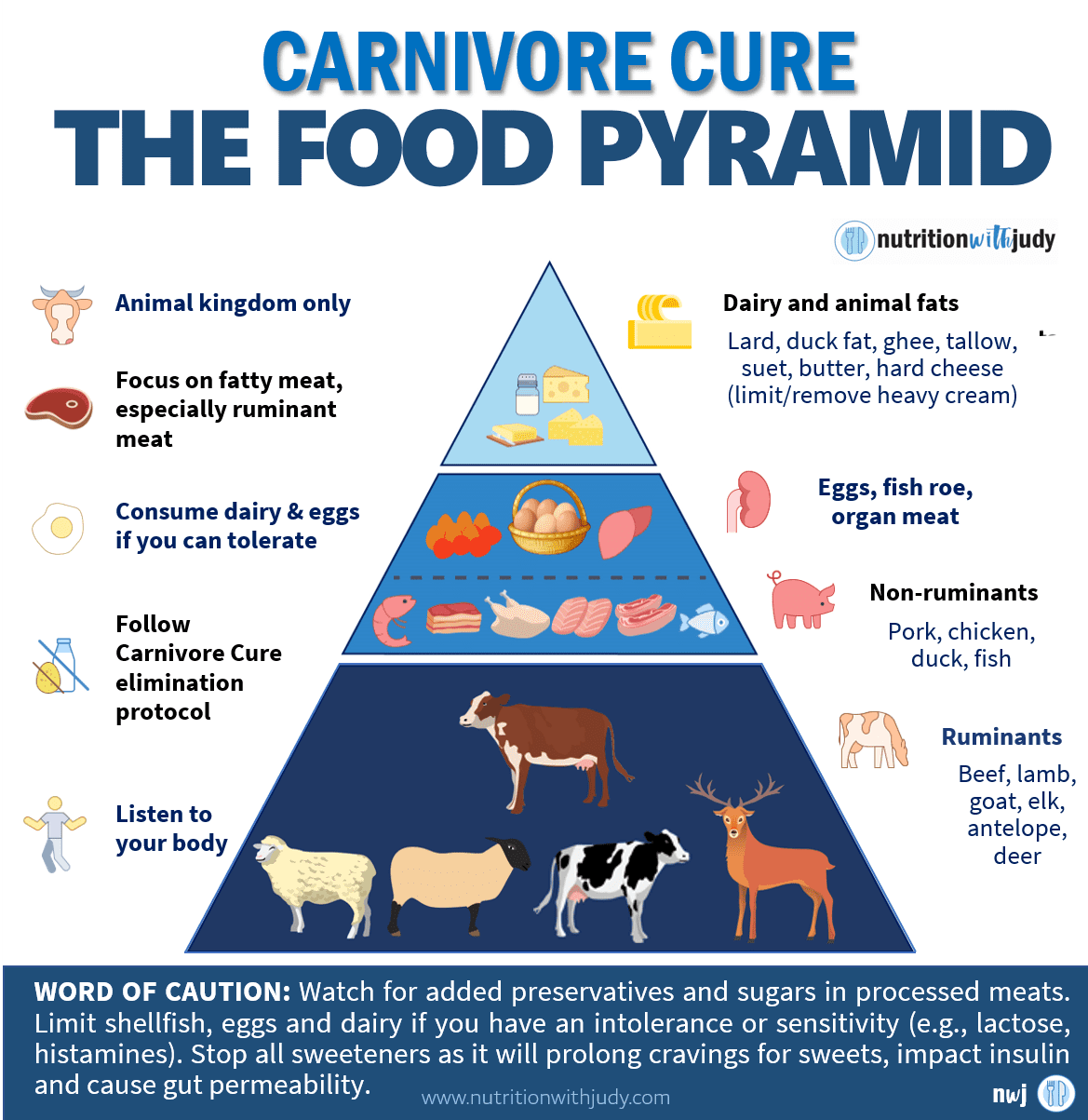

The carnivore diet, also referred to as Carnivore or meat-based diet, consists of eating only animal foods and avoiding all plants and grains. Unlike ketogenic and other low-carb diets, the carnivore diet is a true zero-carb or nearly zero-carb way of eating that focuses primarily on animal proteins and fats.
There are different variations of the carnivore diet, which are defined by differing inclusions and restrictions of certain foods. Understanding these various options can help individuals make better-informed decisions on what’s sustainable long-term and which approach is ideal for their wellness goals. Learn more in-depth about the carnivore diet here.
The Carnivore Diet for Addressing Chronic Illness Caused By Excessive Sugar Consumption
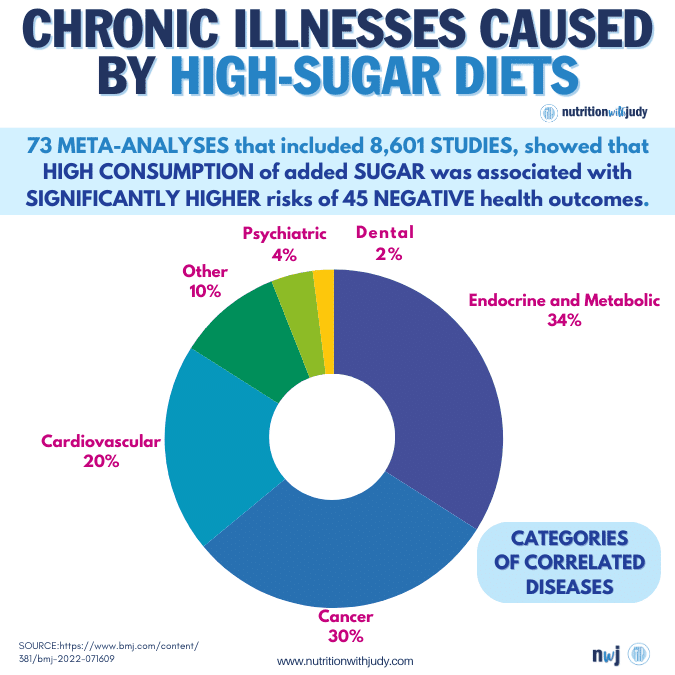

As we’ve learned, excess sugar consumption comes at an expensive cost. According to this review of 8,601 studies on high-sugar diets, the following shows the types of chronic illness outcomes in those with excess sugar consumption:
- Endocrine and metabolic: 34%
- Cancer: 30%
- Cardiovascular: 20%
- Neuropsychiatric: 4%
- Dental: 2%
- Other: 10%
The carnivore diet offers a powerful modality for addressing various chronic illnesses caused by excessive sugar consumption.
Pro-Tip: If you’re unsure about how much damage excess sugar intake has caused all the various systems within your body, we have a couple of comprehensive testing options to help.
The Symptom Burden Assessment (SBA) helps us see these various systems in the body, allowing us to test for possible root-cause areas and what to target. Our Complete Wellness Panel is great for seeing how glucose, insulin, cholesterol, metabolic health, and the immune system are doing as well.
Endocrine and Metabolic Disease
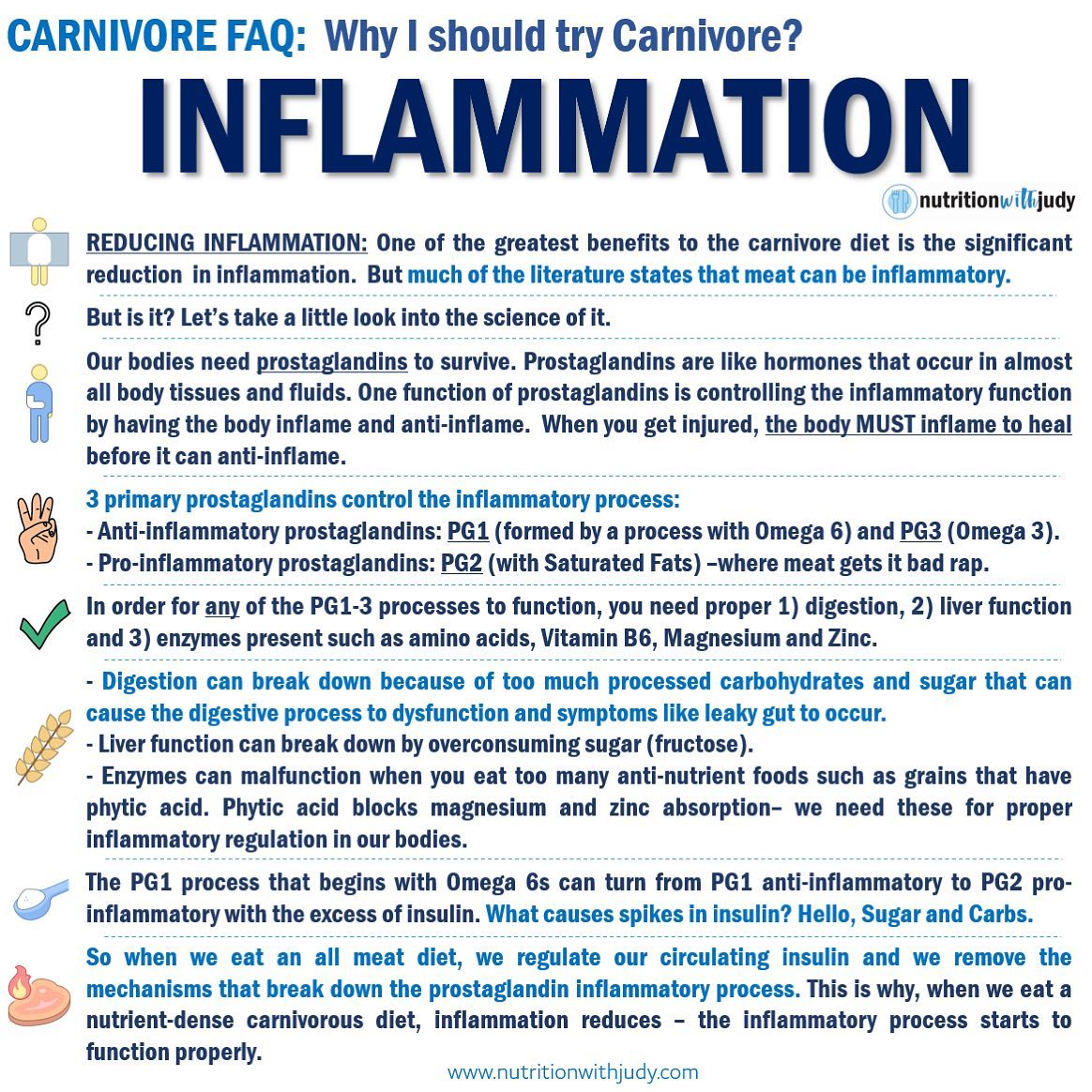

The carnivore diet is ideal for supporting and reversing endocrine and metabolic disease for the following reasons:
Reduced Carbohydrate Intake: The carnivore diet eliminates carbohydrates, which can help regulate blood sugar levels and insulin sensitivity. This is beneficial for individuals with diabetes or prediabetes, as it leads to improved glycemic control.
Pro-Tip: Need some additional blood sugar imbalance support while your body transitions to the carnivore diet? Biotics Research Bio-Glycozyme Forte is a broad-spectrum product for supporting normal, healthy glycemic function.
Weight Loss: High protein and fat intake can increase satiety, often leading to reduced calorie intake and weight loss. Weight loss is beneficial for improving metabolic syndrome components, such as high blood pressure, high blood sugar, excess body fat around the waist, and abnormal triglyceride levels.
Reduced Inflammation: The carnivore diet helps reduce inflammation, which is a risk factor for many chronic diseases, including those affecting the endocrine system. The elimination of processed foods, sugars, and certain plant-based foods that may trigger inflammatory responses in some individuals could contribute to this effect.
Hormonal Regulation: The consumption of animal products provides high levels of certain nutrients that are essential for hormone production and regulation, such as vitamin B12, iron, and zinc. Proper hormonal balance is crucial for the functioning of the endocrine system.
Cancer
We had the pleasure of speaking with Dr. Thomas Seyfried, a professor of biology at Boston College with extensive research in cancer metabolism. We discuss how cancer is primarily a metabolic disease rather than a genetic disorder. Seyfried advocates for viewing cancer through the lens of metabolic dysfunction, specifically mitochondrial damage, rather than solely genetic mutations. This perspective suggests that altering the body’s metabolic environment can influence the development and progression of cancer.
Here’s why the carnivore diet is ideal for supporting cancer:
Reduced Glucose and Glutamine: The carnivore diet drastically reduces the intake of carbohydrates, which lowers glucose levels in the body. Since cancer cells rely heavily on glucose (and glutamine) for energy through a process known as fermentation, a diet that minimizes glucose availability could theoretically starve cancer cells or inhibit their growth.
Ketosis and Cancer: By consuming a diet high in fats and proteins while eliminating carbohydrates, individuals can enter a state of ketosis. Ketone bodies, produced during ketosis, cannot be utilized effectively by cancer cells for energy. This metabolic state may potentially inhibit cancer growth by depriving cancer cells of their preferred energy source.
Lower Insulin and Growth Factors: High-carb diets can lead to increased insulin and insulin-like growth factors, which have been implicated in cancer progression. The carnivore diet, by significantly reducing carbohydrate intake, may help lower levels of these growth-promoting hormones, potentially reducing cancer risk.
Mitochondrial Health: Seyfried discusses the importance of mitochondrial health in preventing cancer. A diet that supports mitochondrial function (by providing fuel that can be efficiently used by mitochondria, such as fats over carbohydrates) is also believed to help protect against cancer.
Elimination of Carcinogenic Compounds: By eliminating plant-based foods, some of which may contain natural toxins such as glyphosate and aflatoxins, the carnivore diet can also help reduce exposure to certain carcinogens.
Cardiovascular Disease
Similar to endocrine and metabolic disease, the carnivore diet also supports and reverses cardiovascular disease with the following:
Weight Loss: A carnivore diet can lead to weight loss for some individuals due to its restriction of carbohydrates, leading to reduced calorie intake and a shift towards using fat as a primary energy source. Weight loss is associated with improved cardiovascular risk factors, including lower blood pressure and improved lipid profiles.
Improved Blood Sugar Control: By eliminating carbohydrates, the carnivore diet can help stabilize blood sugar levels and improve insulin sensitivity. High insulin levels and insulin resistance are risk factors for cardiovascular disease, so improvements in these areas can reduce cardiovascular risk.
Reduction in Inflammation: Similar to other low-carb diets, the carnivore diet reduces markers of inflammation, a key factor in the development and progression of atherosclerosis, which is the underlying cause of many cardiovascular diseases.
Neuropsychiatric Disease
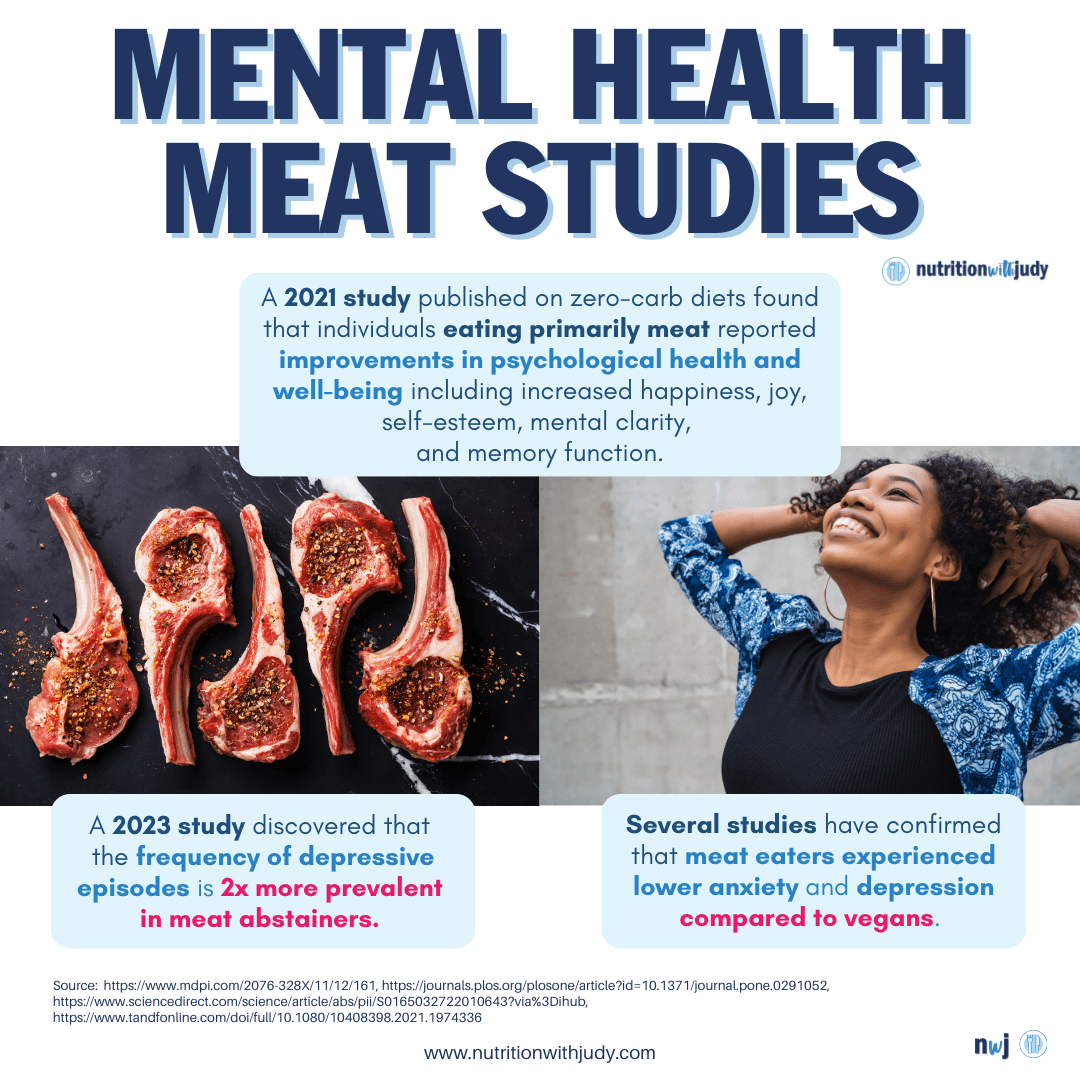

The carnivore diet is ideal for supporting mental health for a variety of reasons:
Mental Health Meat Studies: Recent research across various studies and journals highlights a consistent link between meat consumption and improved mental health outcomes. A meta-analysis in Critical Reviews in Food Science and Nutrition, reviewing 20 studies with over 171,000 participants, found meat eaters had lower rates of depression and anxiety compared to non-meat eaters.
In addition to other studies, these studies suggest a beneficial link between meat consumption and mental health, challenging the notion that avoiding meat improves psychological well-being.
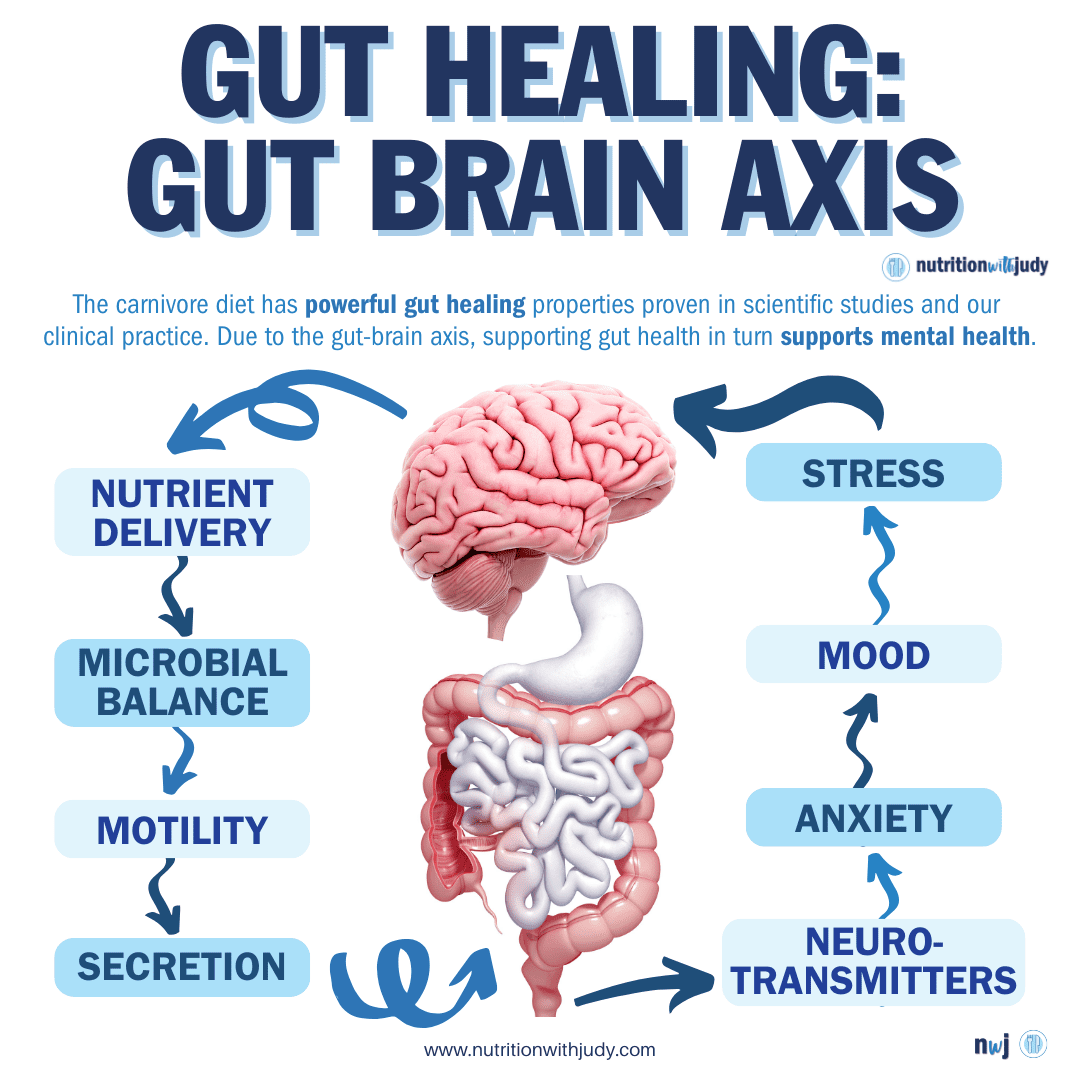

Improved Gut Health and Mental Well-Being: Research from the Behavioral Sciences indicates that zero-carb, meat-focused diets can enhance digestive health, notably reducing symptoms of gastrointestinal (GI) conditions, by providing essential nutrients such as iron for gut health.
The interconnectedness of gut and brain health through the autonomic nervous system, hypothalamic-pituitary-adrenal axis, and gastrointestinal tract nerves highlights how a healthy gut can positively impact mental well-being.
The gut microbiota plays a crucial role in this relationship by affecting nutrient availability and influencing mood and mental health through the gut-brain axis. Imbalances in gut bacteria can lead to inflammation, which is linked to depression and anxiety. Therefore, the carnivore diet’s benefits on gut health are believed to extend to improving mental health and overall well-being.
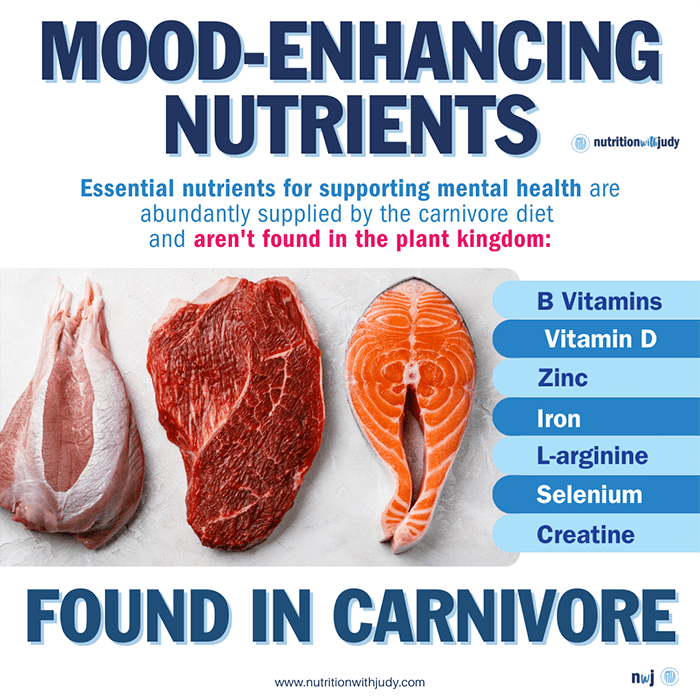

Mood-Enhancing Nutrients: The carnivore diet enhances mental health through its rich nutrient profile, including B-complex vitamins, vitamin D, iron, zinc, L-arginine, and selenium, which are crucial for brain function and mood regulation.
It avoids potential mental health detractors such as gluten, aflatoxins, lectins, and glyphosate. High in cholesterol, this diet counters the mental health risks associated with low cholesterol levels. Essential nutrients from animal sources, often lacking in bioavailability from plants, support neurological health and reduce risks of depression and anxiety, offering a natural mood enhancement without the need for supplements.
Dental Disease
The carnivore diet is ideal for dental disease and supporting oral health primarily due to its influence on gut health, as the late Dr. Al Danenberg emphasized in our last interview. He highlighted the interconnectedness of oral health and gut health, suggesting that a healthy gut microbiome, supported by a meat-focused diet, leads to improved oral health.
This diet eliminates potential irritants and foods that can contribute to oral diseases, such as those containing anti-nutrients, and provides essential nutrients for gut and oral health. By focusing on animal-based foods, individuals can avoid the detrimental effects of plant-based anti-nutrients, sugar consumption, and chemicals on the gut microbiome, which in turn supports the health of the mouth.
We also discussed the historical aspect of human diet evolution towards meat consumption, emphasizing that our physiology is more suited to animal-based foods, which can foster a healthier gut and, consequently, better oral health.
The Carnivore Diet for Sugar Addiction
Now that we’ve covered how the carnivore diet can help support and reverse many of the chronic conditions caused by high-sugar diets, let’s take a look at why it’s ideal for healing sugar addiction and overall food addiction.
The carnivore diet is ideal for healing food addiction because it emphasizes focusing on food sobriety, which naturally leads to overcoming disordered eating behaviors. The carnivore diet also facilitates recovery by eliminating addictive foods and prioritizing nutrient-dense, satiating options, primarily from animal sources.
This approach simplifies eating habits, reduces cravings, and minimizes the triggers for binge eating or compulsive overeating. By adhering to a carnivore or meat-based diet, individuals can achieve mental clarity and improved cognitive function, which are crucial for recognizing and addressing the emotional and psychological aspects of food addiction.
While the diet promotes physical health improvements, such as weight loss and reversal of metabolic diseases, more importantly, it fosters a healthier relationship with food. This shift away from seeing food as a source of comfort or entertainment to viewing it as nourishment for strength and health is a critical component of recovery.
Closing Thoughts On the Carnivore Diet and Modern-Day Sugar Crisis
As we did an in-depth review of the detrimental effects of sugar consumption, we also challenged the prevailing notion of “everything in moderation” by highlighting the modern-day crisis of excessive sugar intake and its association with a range of chronic illnesses, including obesity, metabolic diseases, cancer, and cardiovascular conditions. Understanding the biological roles of sugar and the process of gluconeogenesis helps us understand the unnecessary need for dietary glucose, as our bodies can convert this from proteins.
The carnivore diet is an effective solution that shares dietary options away from foods rich in carbohydrates and processed sugars. (Less sugar means less insulin needed). By focusing exclusively on animal foods and eliminating plant-based sources of sugar (all carbohydrates convert to sugars), the carnivore diet aims to reduce inflammation, improve metabolic health, and reverse the impacts of sugar addiction. The carnivore diet’s emphasis on food sobriety is particularly notable, suggesting that a complete abstention from sugar and carb-laden foods can significantly improve physical and mental health.
Now that we’ve touched on the historical context of sugar consumption, the addictive nature of sugar, and the modern-day challenges of consuming fruits and vegetables that are far removed from their ancestral counterparts, it helps put current dietary guidelines into context.
The goal is to heal chronic conditions and food addiction through the carnivore diet so that one day, we’re metabolically flexible enough and mentally capable of introducing some carbs or sugars back into our diet. While some of us may need to remain strict with our sugar and carbohydrate intake due to past food addiction issues, we hope to empower everyone by healing our relationships with food while supporting optimal health through a meat-focused diet.
Work With Our Trusted Carnivore Diet Functional Nutritional Therapy Practitioners
The Nutrition with Judy practice is honored to be a trusted carnivore diet practitioner support serving clients from around the globe. We’re passionate about helping our clients achieve root-cause healing in order to lead the best quality of life possible that’s nearly symptom-free. Our team is dedicated to educating our community about the incredible benefits of the carnivore diet. We welcome you to explore our free resources and are always available to support you through personalized protocols. Our Symptom Burden Assessment (SBA) is the perfect starting point for discovering your root cause and is required to work with our team— you can learn more in-depth about this powerful tool here.
Start your root-cause healing journey today and contact us any time with any questions or concerns.
DISCLAIMER: This content is for educational purposes only. While we are board-certified in holistic nutrition and are nutritional therapy practitioners, we are not providing medical advice. Whenever you start a new diet or protocol, always consult with your trusted practitioner first.



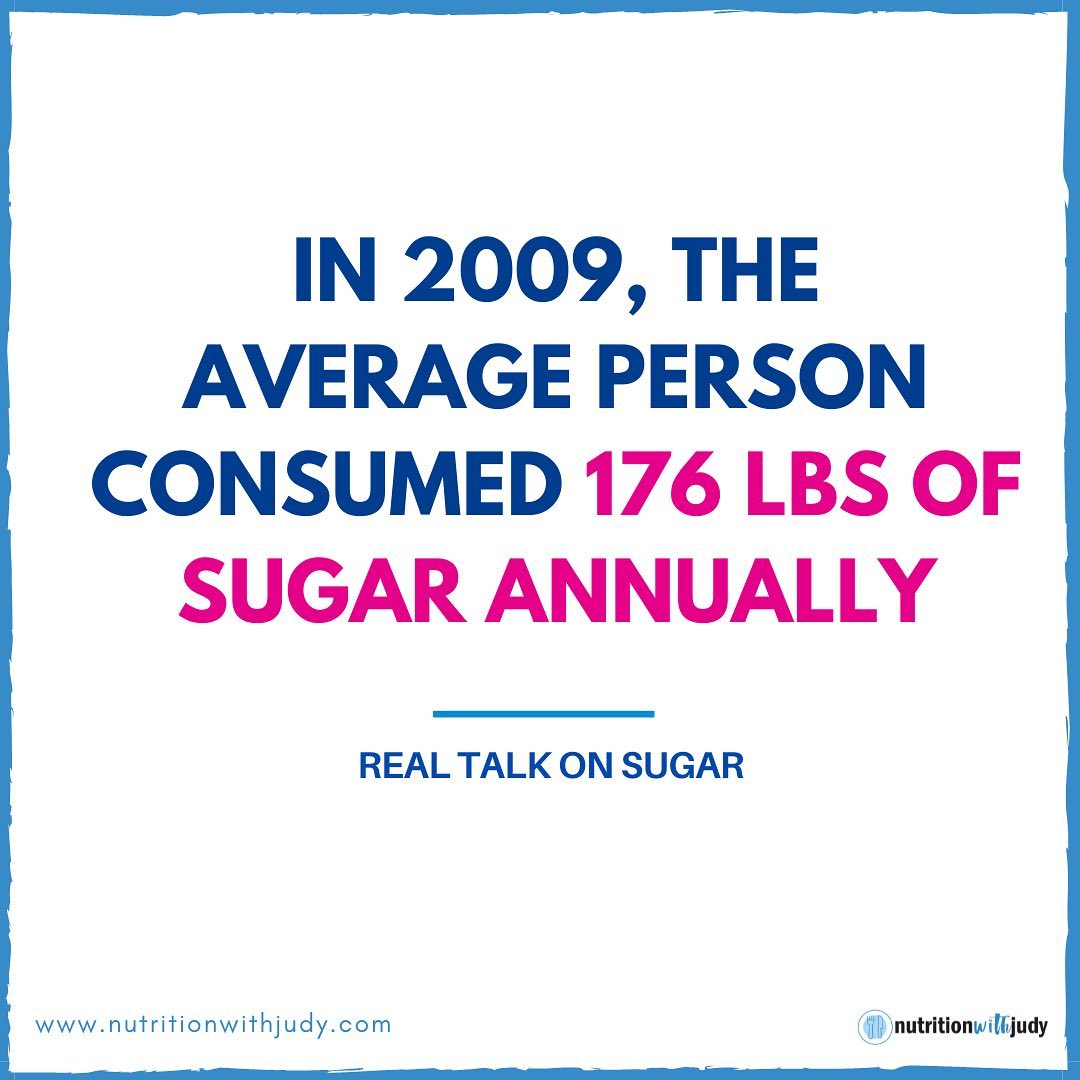
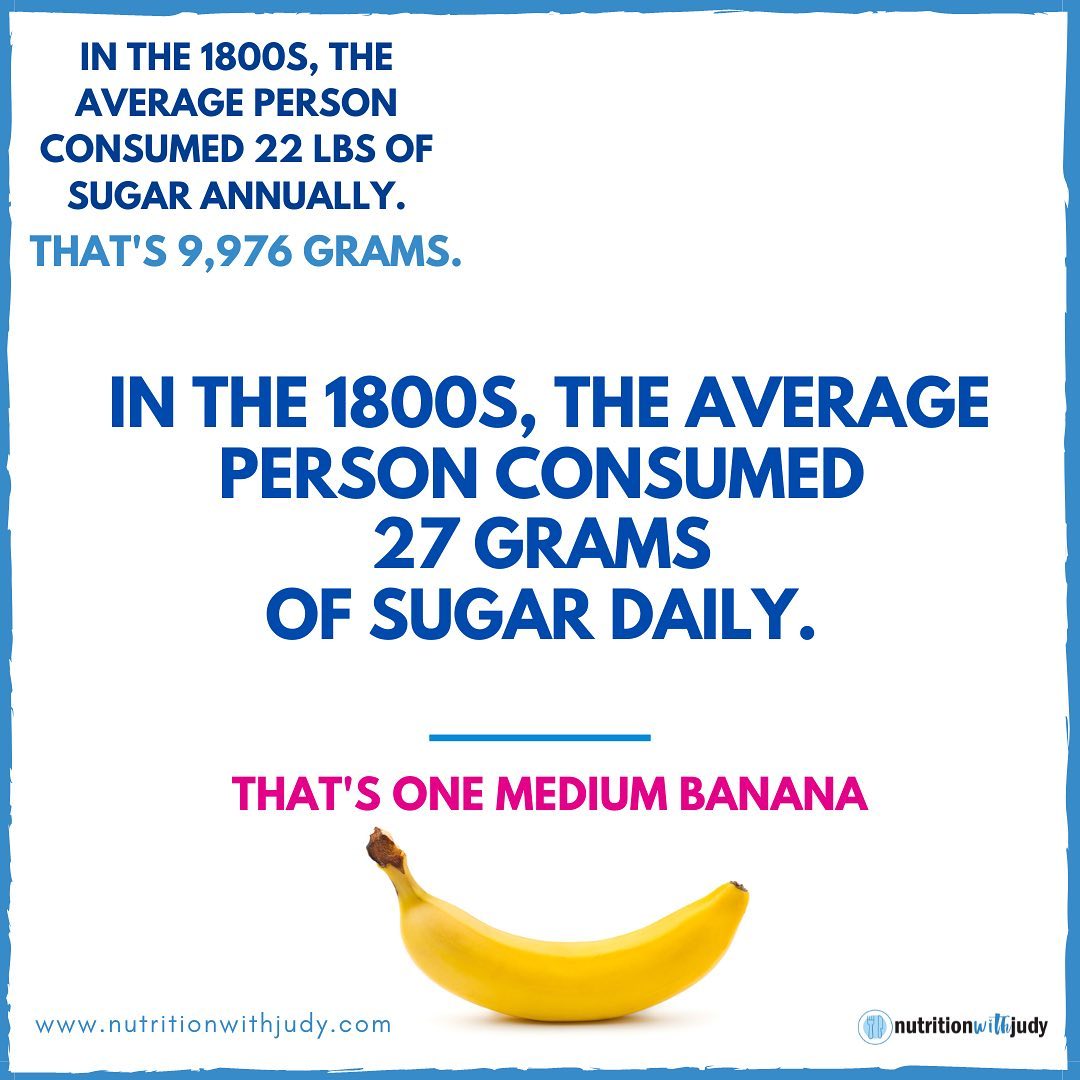
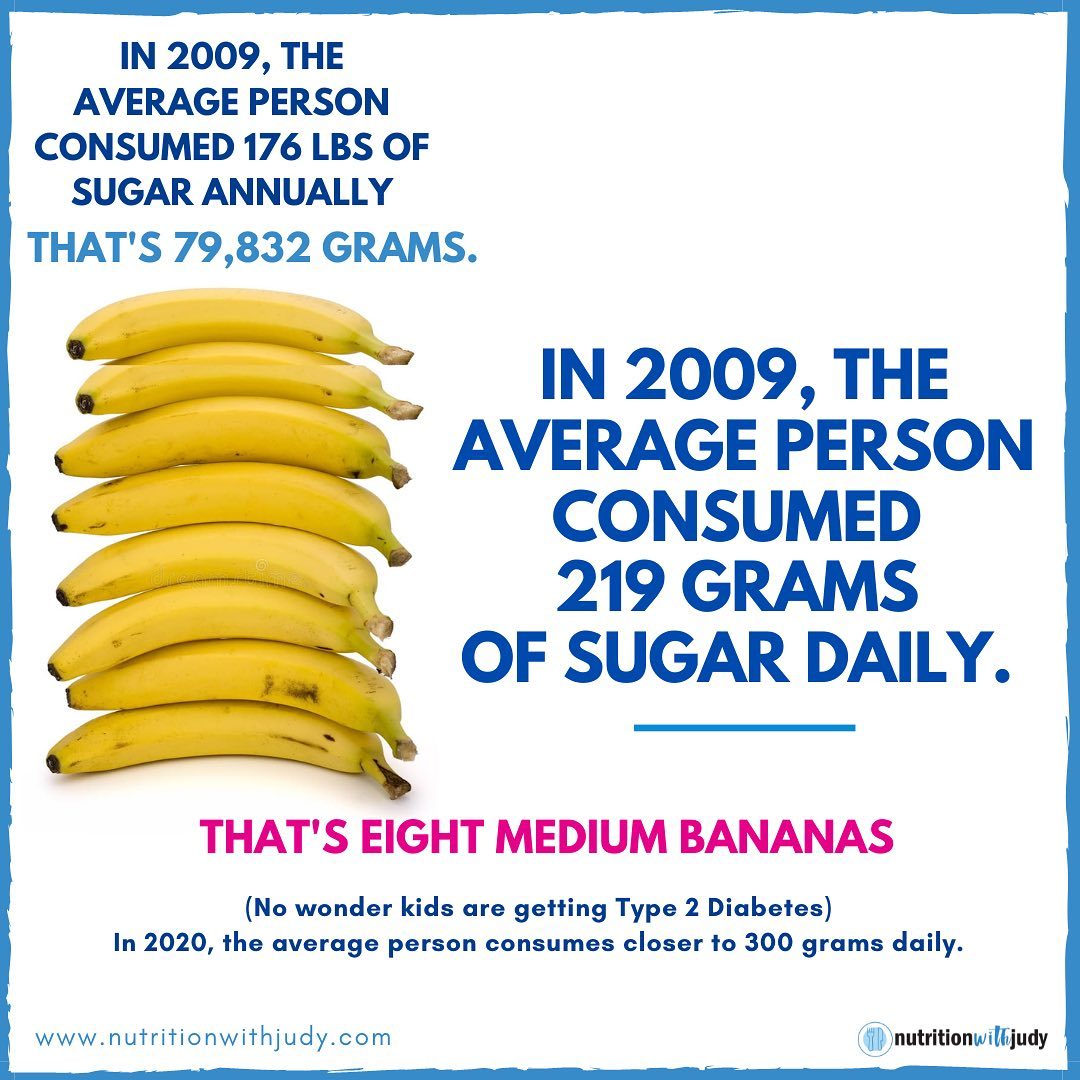
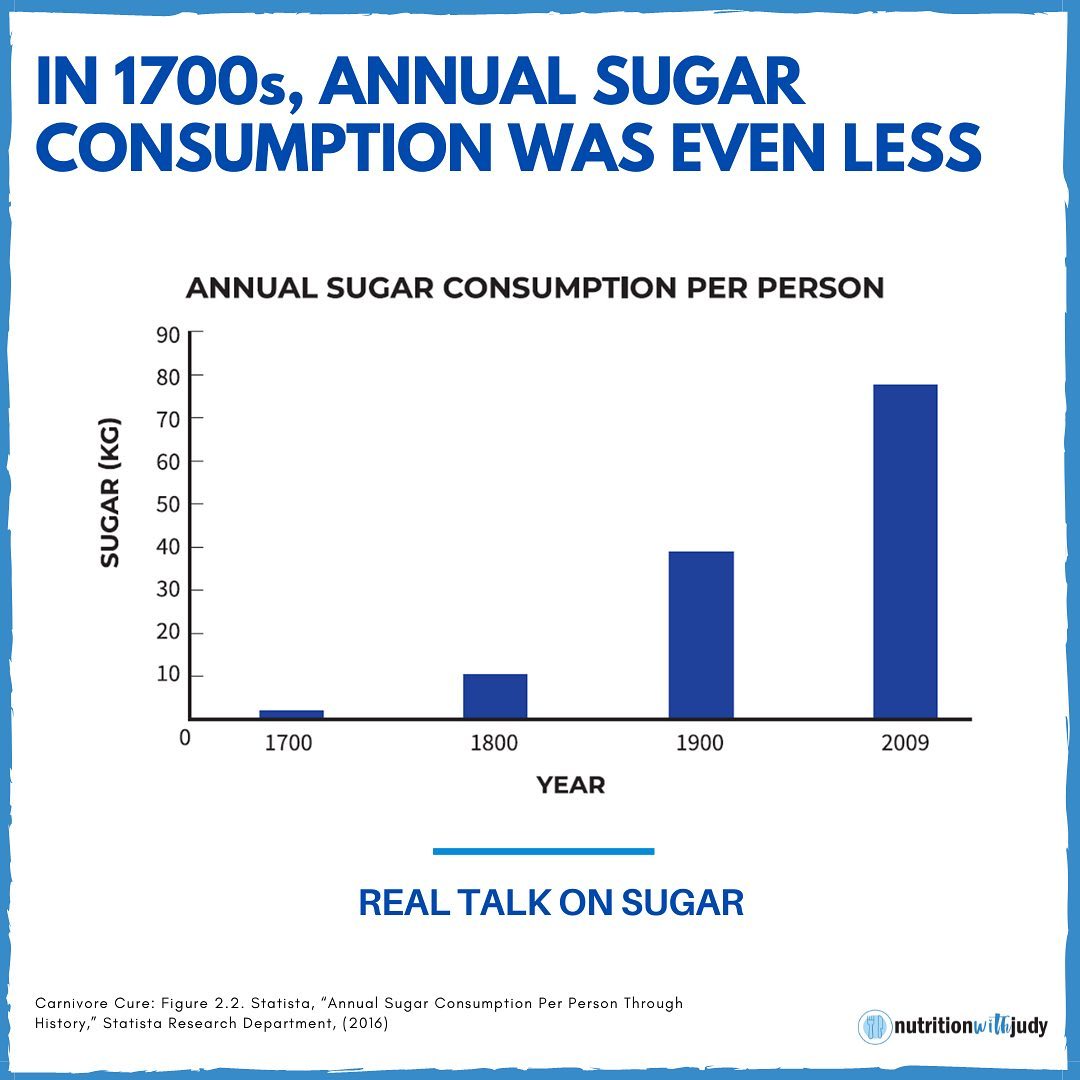
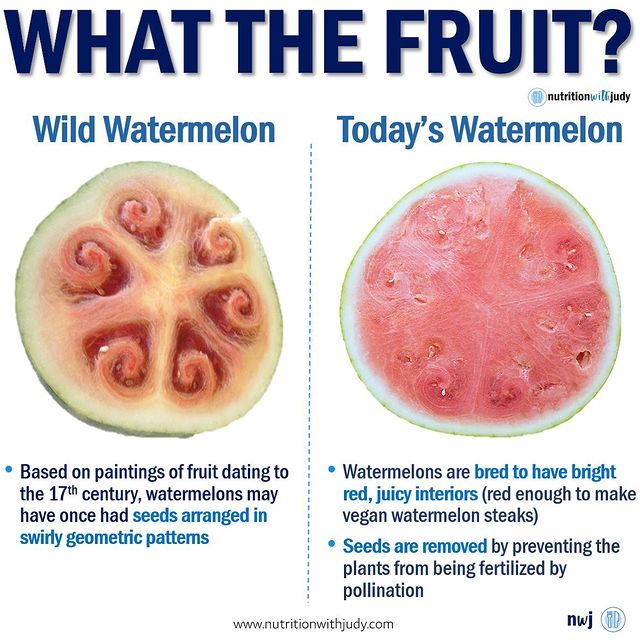
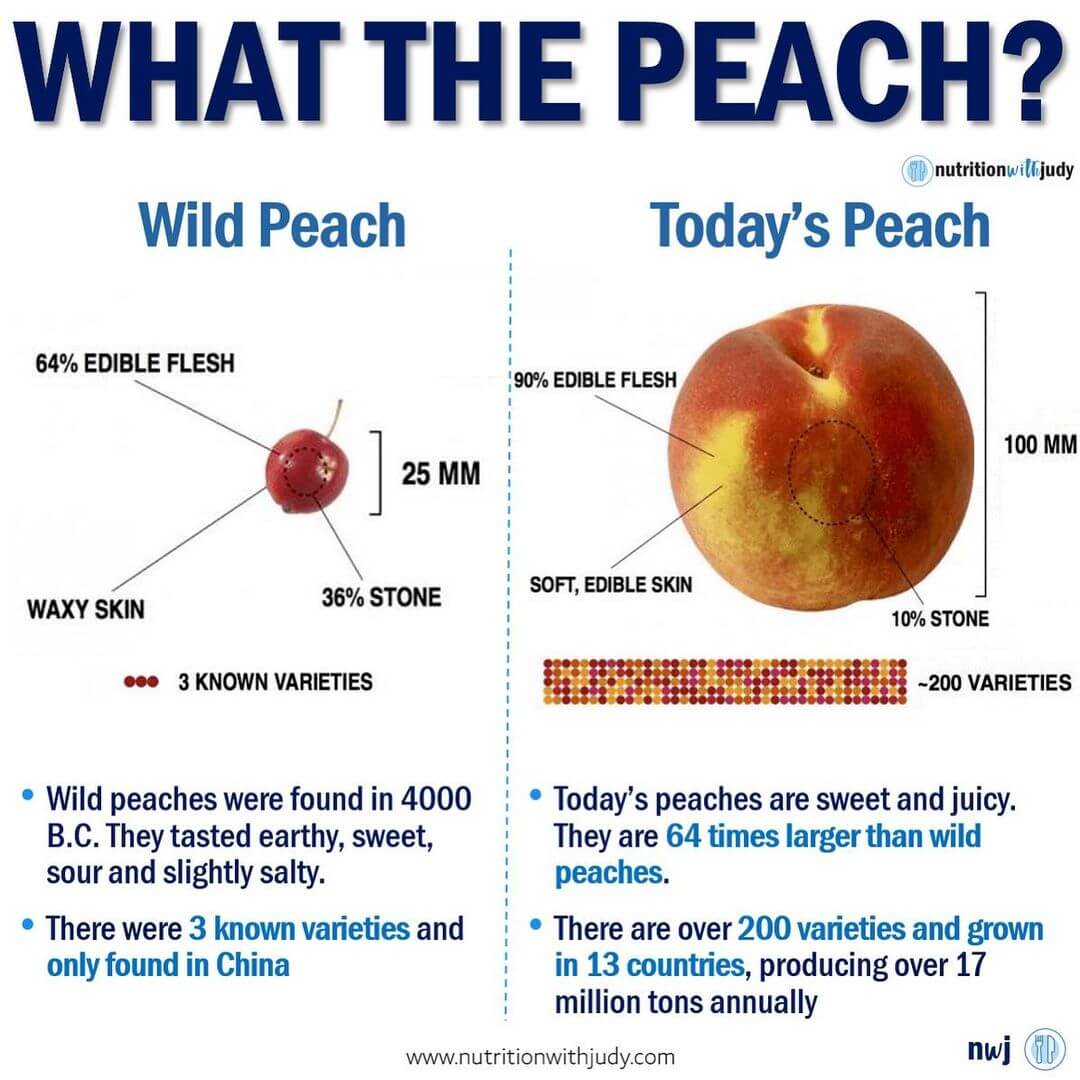
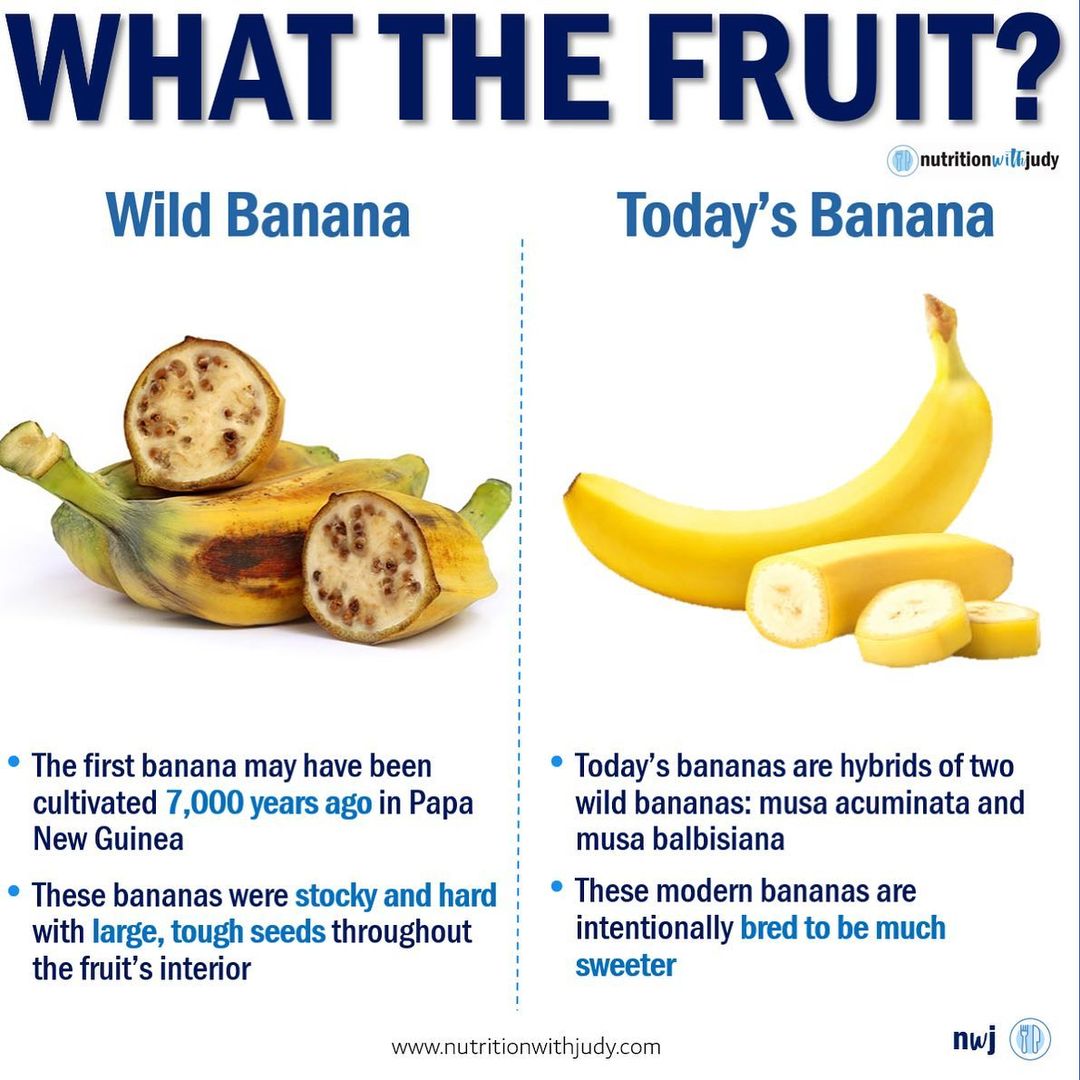
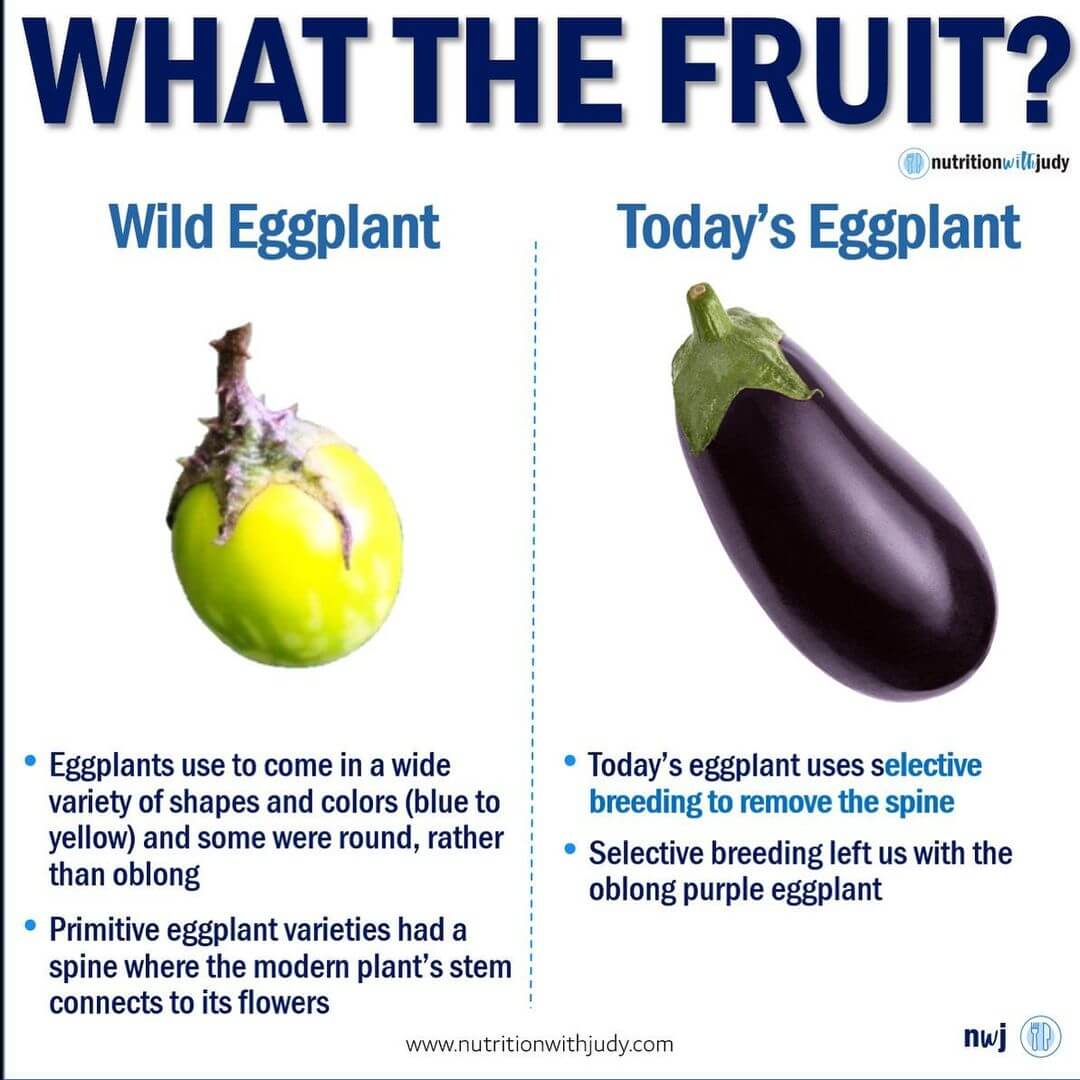

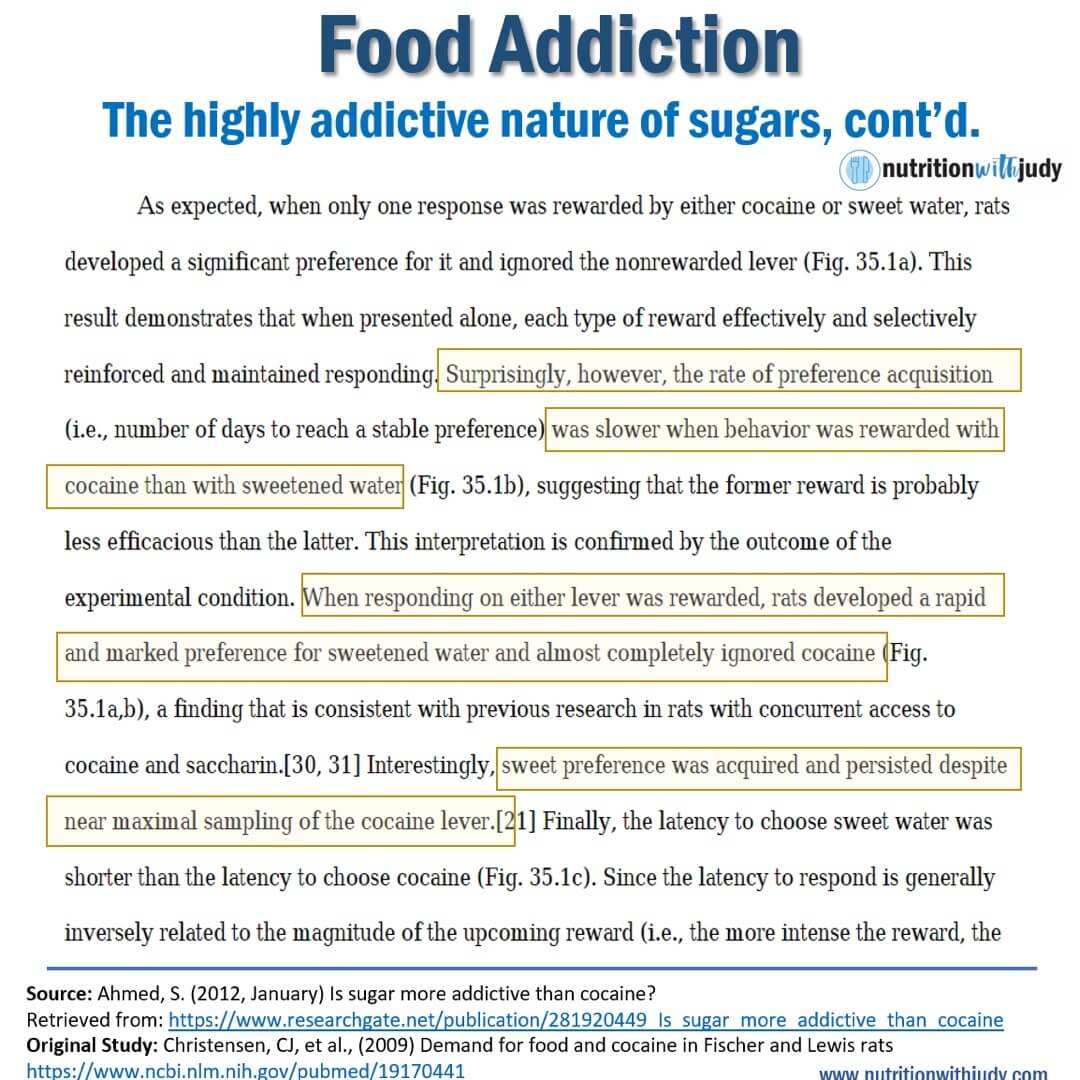
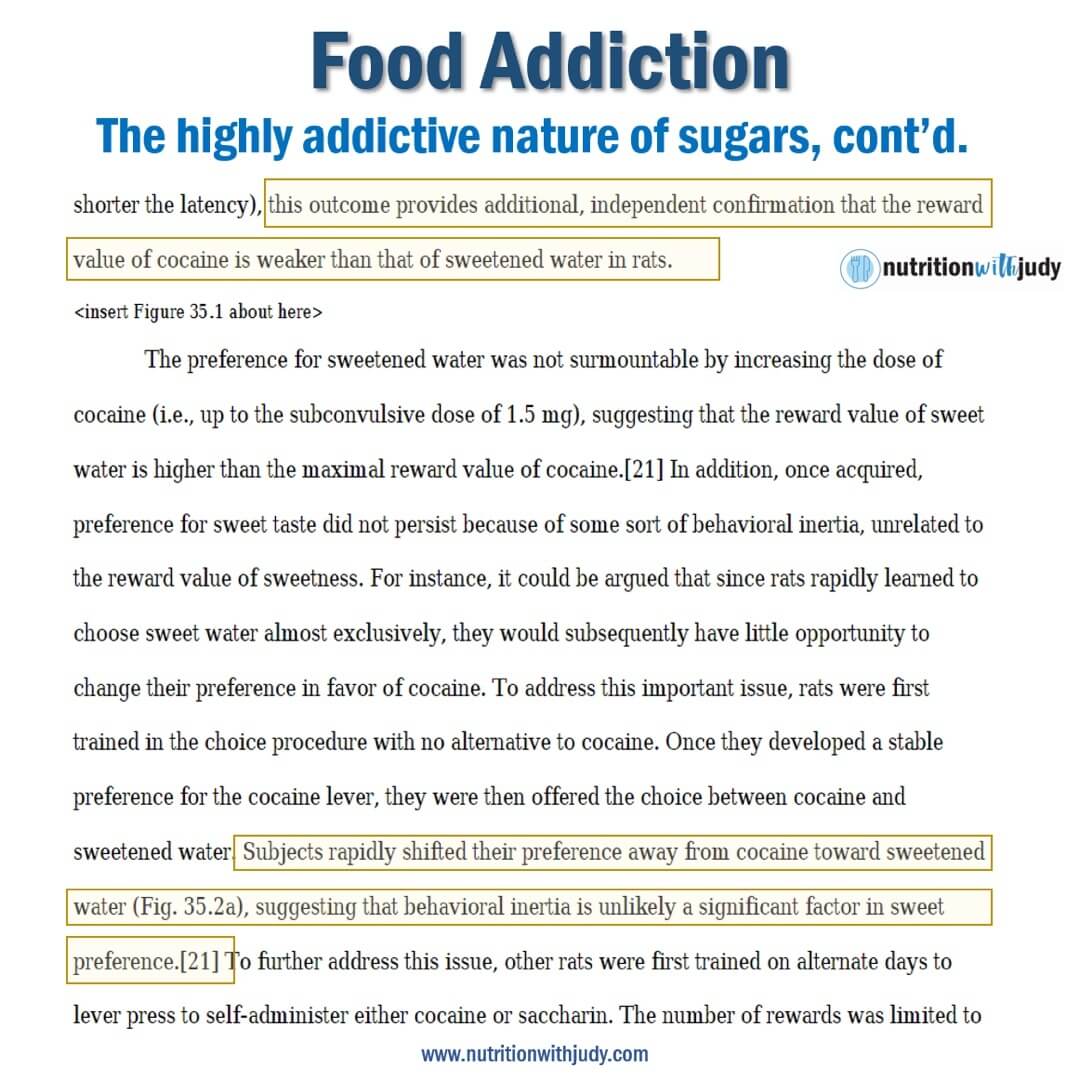





Vicki Kiraly
March 9, 2024 at 7:29 amThis is an amazingly comprehensive source of information, explaining complex processes in a way that the average person won’t get lost in. Great job! I know the benefits I’ve experienced by changing to this way of eating, and this helps me to understand the physical and mental processes going on. Thanks Judy. Great job!